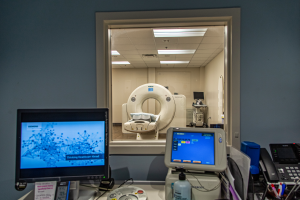It was a hot Texas afternoon when 10-year-old Jack started feeling “weird,” as he put it. What began as a normal summer day at football practice quickly spiraled into something far more alarming. This is the story of how a common, preventable condition turned into a medical emergency—and what every parent, caregiver, and adult should know about dehydration in children.
The Warning Signs We Overlook
Jack is a 10-year-old pee-wee football player with no current or previous medical issues. In mid-July, he and his team begin two-a-days to prepare for the upcoming season in late August. As a child, Jack doesn’t think too much about preparing to deal with the brutal heat of Texas summers.
The first day of practice was tough – he experienced a little bit of nausea and some cramping in his belly, but brushed them off, thinking he was just hungry or maybe hadn’t been active as much over summer break. He ignores the signs and doesn’t tell his coach or parents.
On the second day of practice, Jack returns with the same symptoms, only he now feels disoriented and confused. As he attempts to line up for a play, he feels like he’s going to fall over.
What Parents Need To Know
Thanks to the quick thinking of his parents, he was rushed to Surepoint Emergency Center. On the way there, Jack’s mom placed a cold, wet towel around his body to try to cool him down. Their actions kept him stable until they arrived at Surepoint, where they were met with compassionate staff who acted quickly to address Jack’s symptoms. They began a cold compress over his body to rapidly lower his internal temperature. The team was also able to give him much needed IV fluids to help restore hydration.
Jack is back to his usual self now—bouncing off the walls, laughing too loudly, and never far from his favorite blue water bottle. His story had a happy ending, but it could have gone another way. Dehydration is silent and swift, and often overlooked until it’s too late.
Sometimes, the smallest things—like a few extra sips of water—can make the biggest difference.
Why Dehydration Hits Kids Harder
Children are more vulnerable to dehydration than adults because their bodies don’t adjust to heat as efficiently. They also tend to ignore thirst cues, especially when they’re engaged in play or sports. By the time symptoms appear—dry mouth, fatigue, headaches, or dizziness—they’re often already in a danger zone.
Some of the most critical signs include:
-
Dark yellow or very little urine output
-
Sunken eyes or cheeks
-
No tears when crying
-
Rapid breathing or heartbeat
-
Confusion or irritability
Emergency Care You Can Trust! Why Surepoint is the Right Choice
 Experiences like Jack’s are all too common, often due to a lack of awareness of how these conditions develop. Luckily for Jack his parents acted fast and knew where their closest Surepoint ER was so they could get him in and treated quickly. If you or a loved one notices any symptoms, don’t hesitate. You must act fast and take preventative measures when necessary. This means staying hydrated, taking frequent breaks when outdoors, and NEVER ignoring early warning signs. If a heat-related illness turns into an emergency, you can always count on Surepoint Emergency Center to be local, accessible, and always ready to provide expert care.
Experiences like Jack’s are all too common, often due to a lack of awareness of how these conditions develop. Luckily for Jack his parents acted fast and knew where their closest Surepoint ER was so they could get him in and treated quickly. If you or a loved one notices any symptoms, don’t hesitate. You must act fast and take preventative measures when necessary. This means staying hydrated, taking frequent breaks when outdoors, and NEVER ignoring early warning signs. If a heat-related illness turns into an emergency, you can always count on Surepoint Emergency Center to be local, accessible, and always ready to provide expert care.
Surepoint Emergency Center is a modern emergency medical facility open 24/7. As an alternative to the traditional hospital ER experience, we offer convenience and minimal wait time, along with highly-trained emergency medical staff and state-of-the-art equipment.
Our top priority is bringing high-quality emergency care, quickly and easily to your family. We are committed to making patients feel better faster in a comforting and compassionate environment.
Expert convenient care in your neighborhood.



References:
Cleveland Clinic. (2025a, June 2). Heat stroke. https://my.clevelandclinic.org/health/diseases/21812-heatstroke
Cleveland Clinic. (2025b, June 2). Heat-Related Illness (Hyperthermia). https://my.clevelandclinic.org/health/diseases/22111-hyperthermia
Mayo Clinic. (2023, April 6). Heat exhaustion – Symptoms and causes. https://www.mayoclinic.org/diseases-conditions/heat-exhaustion/symptoms-causes/syc-20373250
Vandergriff, C. (2024, August 25). New report finds summers are getting hotter and longer in Texas. CBS News. https://www.cbsnews.com/texas/news/new-report-finds-summers-are-getting-hotter-and-longer-in-texas/



